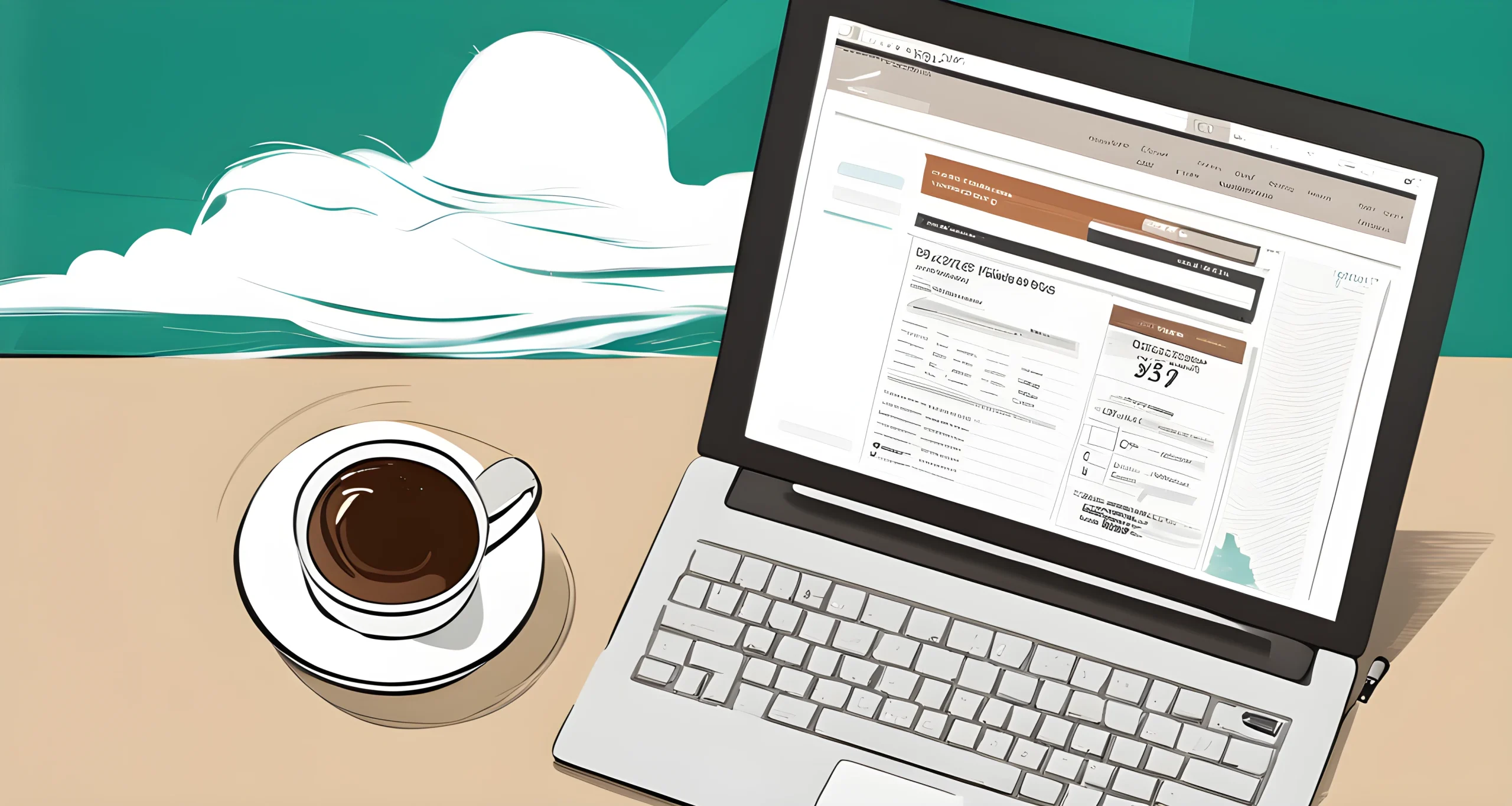Introduction
Traveling on a budget doesn’t mean you have to sacrifice the quality of your trip. One of the key factors in budget trip planning is finding the best flight deals and cheap flights. With the right strategies and tools, you can maximize your travel budget and make the most out of your trip.
Importance of Finding Cheap Flights
Finding affordable flights is crucial for anyone looking to travel on a budget. By securing the best flight deals, you can free up more funds for other aspects of your trip, such as accommodations, activities, and dining. This allows you to fully enjoy your travel experience without breaking the bank.
Reverse Your Approach and Be Flexible
When it comes to finding cheap flights, it’s important to reverse your approach. Instead of having fixed dates and destinations in mind, be flexible with your travel plans. Consider traveling during off-peak seasons or mid-week when flights tend to be cheaper. Being open to various destinations can also lead to discovering unexpected and budget-friendly travel opportunities.
Utilize Best Flight Search Sites and Tech Tools
To find the best flight deals, make use of reliable flight search sites and tech tools. These platforms can help you compare prices across different airlines and provide insights into the cheapest times to book flights. Additionally, signing up for price alerts can notify you when there are significant drops in airfare, allowing you to snag the best deals.
By following these simple steps and utilizing the right resources, you can effectively save money and find cheap flights for your next adventure. For more budget-friendly travel tips, check out 10 budget-friendly travel tricks for additional inspiration.
With these strategies in mind, you can start planning your budget trip with confidence, knowing that you’ll be able to secure affordable flights without compromising on quality.
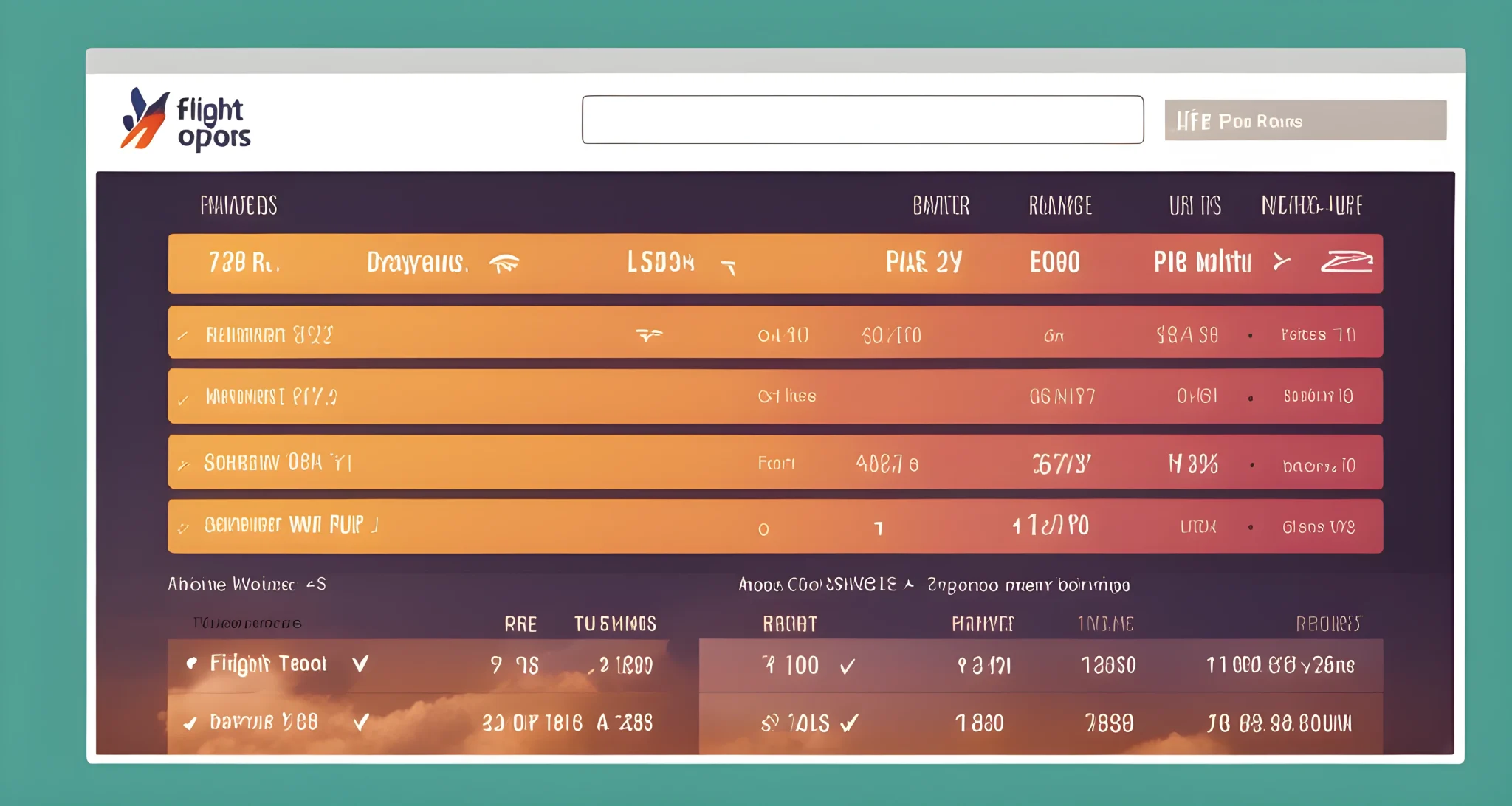
Factors to Consider for Budget Trip Planning
When it comes to planning a budget-friendly trip, there are several factors to consider that can impact the overall cost of your travel. Here are some key considerations to keep in mind:
Destination
- Research the cost of living and exchange rates for your chosen destination.
- Consider traveling to destinations where your currency has a favorable exchange rate.
Time of Travel
- Traveling during off-peak seasons can result in lower flight and accommodation costs.
- Be flexible with your travel dates to take advantage of cheaper options.
Transportation
- Look for budget airline options or consider alternative modes of transportation like trains or buses.
- Consider the cost of getting around at your destination, including public transportation or rental cars.
Accommodation
- Research different types of accommodation, such as hostels, guesthouses, or vacation rentals, which may be more affordable than hotels.
- Look for accommodation located outside of tourist hotspots for potentially lower prices.
Food and Dining
- Plan to eat at local eateries and street food vendors to experience the local cuisine at a lower cost.
- Consider booking accommodations with kitchen facilities to prepare some meals yourself.
Activities and Entertainment
- Research free or low-cost activities at your destination, such as parks, museums, or walking tours.
- Look for discounted tickets or passes for popular attractions and entertainment options.
Currency Exchange and Fees
- Be aware of potential fees for currency exchange and ATM withdrawals.
- Consider using a travel-friendly credit card with no foreign transaction fees Frugal globe-trotter tips.
By taking these factors into account when planning your trip, you can make informed decisions that will help you stick to your travel budget. This comprehensive approach will ensure that you have a realistic understanding of the overall cost of your trip, allowing you to better allocate your funds for an enjoyable travel experience.
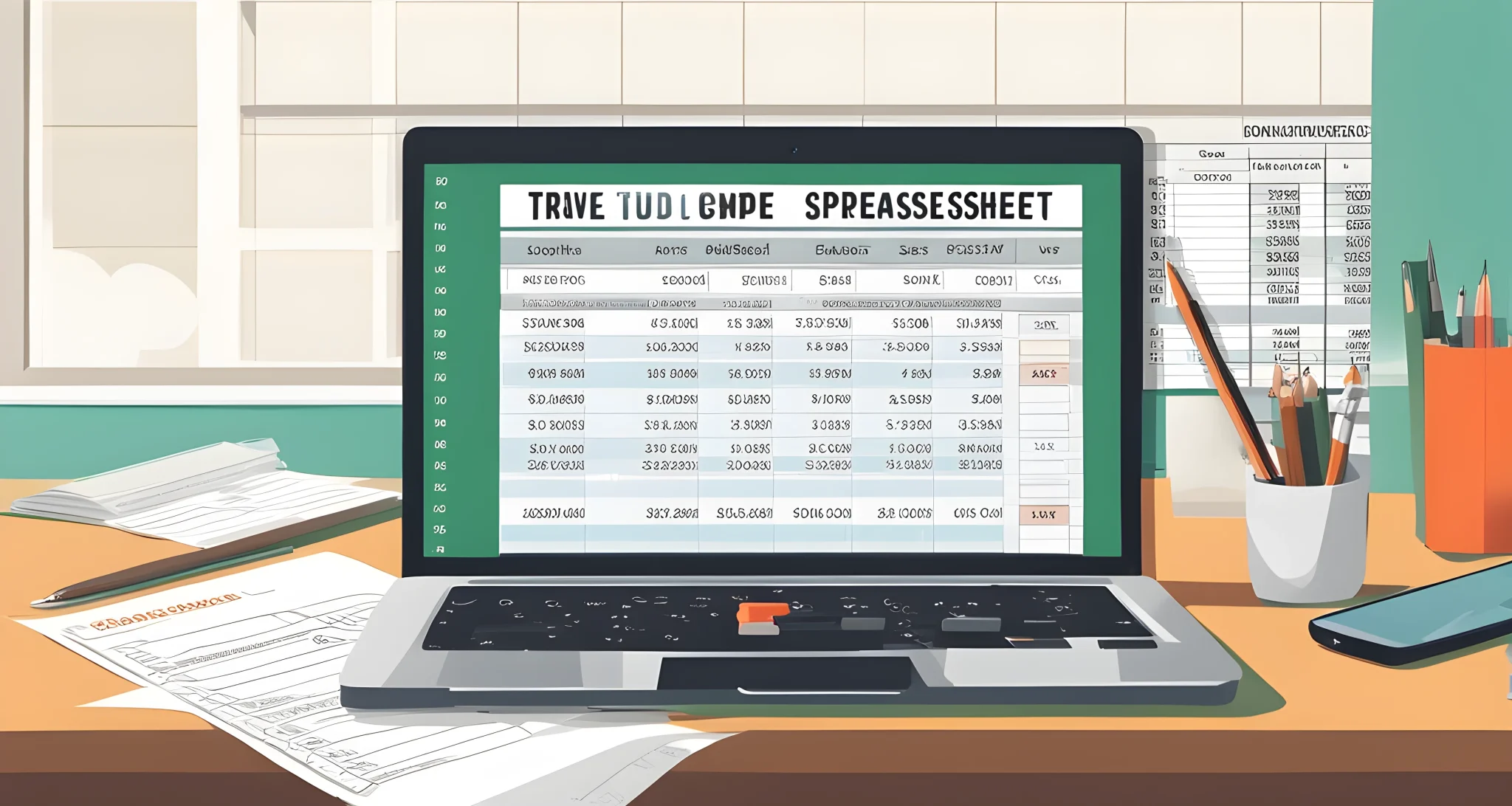
Creating a Detailed Travel Budget Spreadsheet
When it comes to planning a budget-friendly trip, creating a detailed travel budget spreadsheet is essential. This section will guide you through the process of refining your budget with expense categories to ensure that you have a clear understanding of where your money is being spent.
Importance of Expense Categories
- Breaking down your expenses into specific categories such as accommodation, transportation, food, and activities allows you to gain insight into your spending habits.
- This can help you identify areas where costs can be cut and funds reallocated to prioritize activities or experiences that are important to you.
How to Refine Your Budget
- Start by listing all potential expenses for your trip, such as flights, accommodation, transportation, food, activities, and miscellaneous costs.
- Allocate an estimated budget for each category based on research and personal preferences.
- Use a tool like Microsoft Excel or Google Sheets to create a spreadsheet and categorize your expenses accordingly.
- Keep track of actual expenses as they occur and compare them to your estimated budget to identify any discrepancies.
Leveraging Expense Categories for Decision-Making
- By organizing expenses into categories, you can quickly identify which areas are exceeding your budget and adjust accordingly.
- This allows for informed decision-making when it comes to cutting costs in certain areas while allocating more funds to others.
Linking Expense Categories with Overall Travel Budget
- Once you have refined your budget with expense categories, it’s important to link these categories with your overall travel budget.
- Ensure that the total allocated funds for all expense categories align with your predetermined overall travel budget.
In conclusion, creating a detailed travel budget spreadsheet is crucial for effective budget planning. By refining your budget with expense categories, you can gain a clear understanding of where your money is being spent and make informed decisions on how to allocate funds. This process sets the foundation for sticking to your travel budget and maximizing the value of your trip.
Don’t forget to check out our Budget-Friendly Travel Tips article for additional insights on sticking to your travel budget.
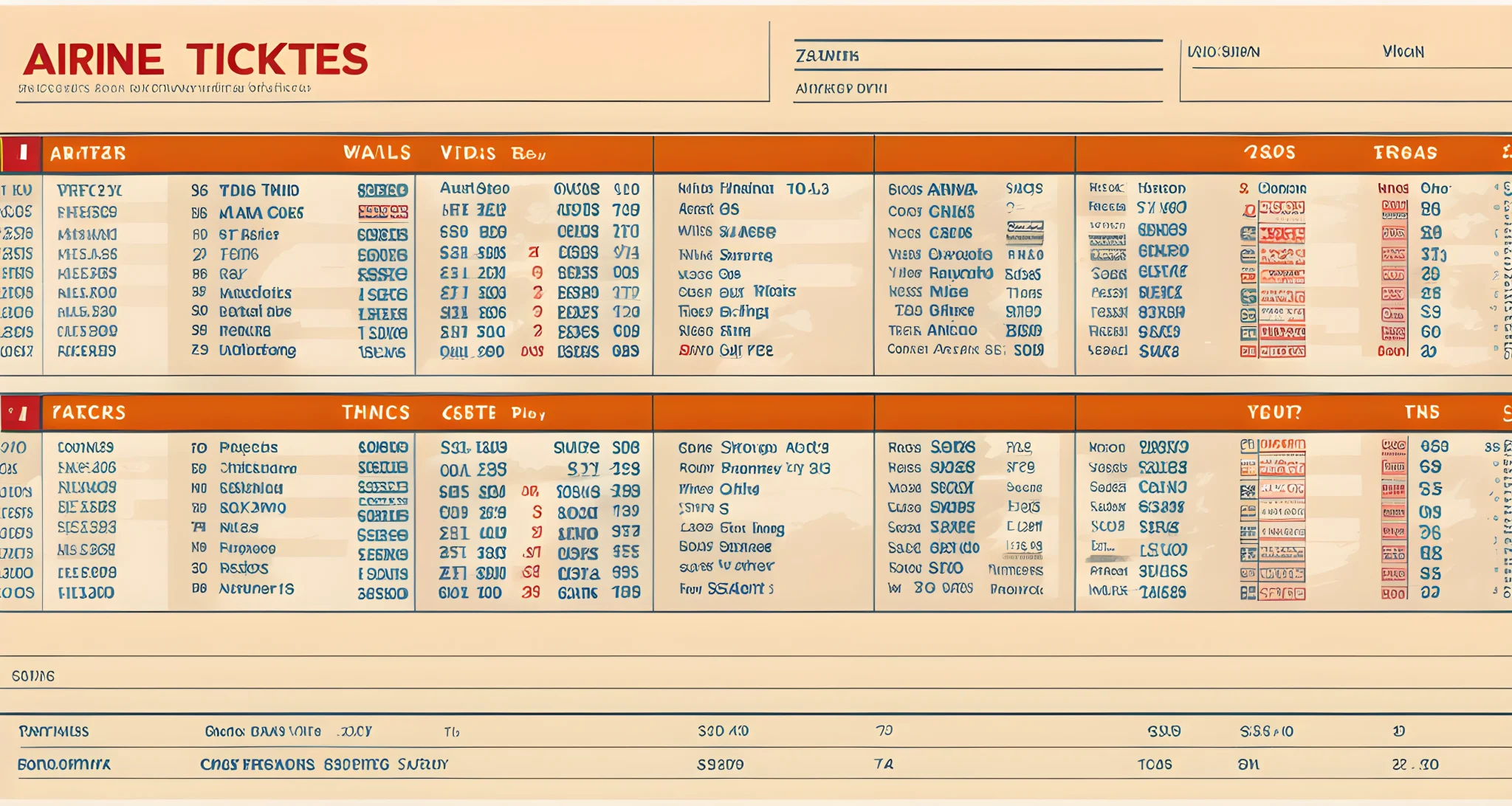
Refining Your Budget with Expense Categories
Once you have created a detailed travel budget spreadsheet, the next step is to refine it with specific expense categories. This will help you gain a deeper understanding of where your money is going and where you can potentially cut costs.
Importance of Expense Categories
- Accuracy and Realism: Breaking down your budget into categories such as groceries, dining out, transportation, accommodation, and activities will provide a more accurate picture of your expenses.
- Identifying Savings: By categorizing your expenses, you can easily identify areas where you can make adjustments to save money.
Budgeting by Item or Category
When budgeting by item or category, it’s important to consider the specifics of each expense. For example, rather than simply budgeting a lump sum for food, consider breaking it down further into categories such as groceries, dining out, and drinks.
- Groceries: Allocate a specific amount for groceries based on your dietary needs and the cost of living at your destination.
- Dining Out: Set aside a separate budget for dining out, taking into account the average cost of meals at your destination.
- Drinks: If you plan to enjoy beverages such as coffee, alcohol, or smoothies while traveling, allocate a separate budget for drinks.
This level of detail can help ensure that your budget is accurate and realistic. It will also allow you to adjust your spending in different categories based on your priorities.
Finalizing Your Overall Travel Budget
Once you have refined your budget with specific expense categories, it’s time to finalize your overall travel budget. Take into account any additional expenses such as travel insurance, visa fees, and souvenirs. Make sure that your budget is comprehensive and covers all aspects of your trip.
By refining your budget with expense categories, you can gain better control over your spending and make informed decisions about where to allocate your funds. This level of detail can ultimately lead to a more enjoyable and stress-free travel experience.
For more money-saving tips on travel, check out our article on Money-saving backpacking tips.
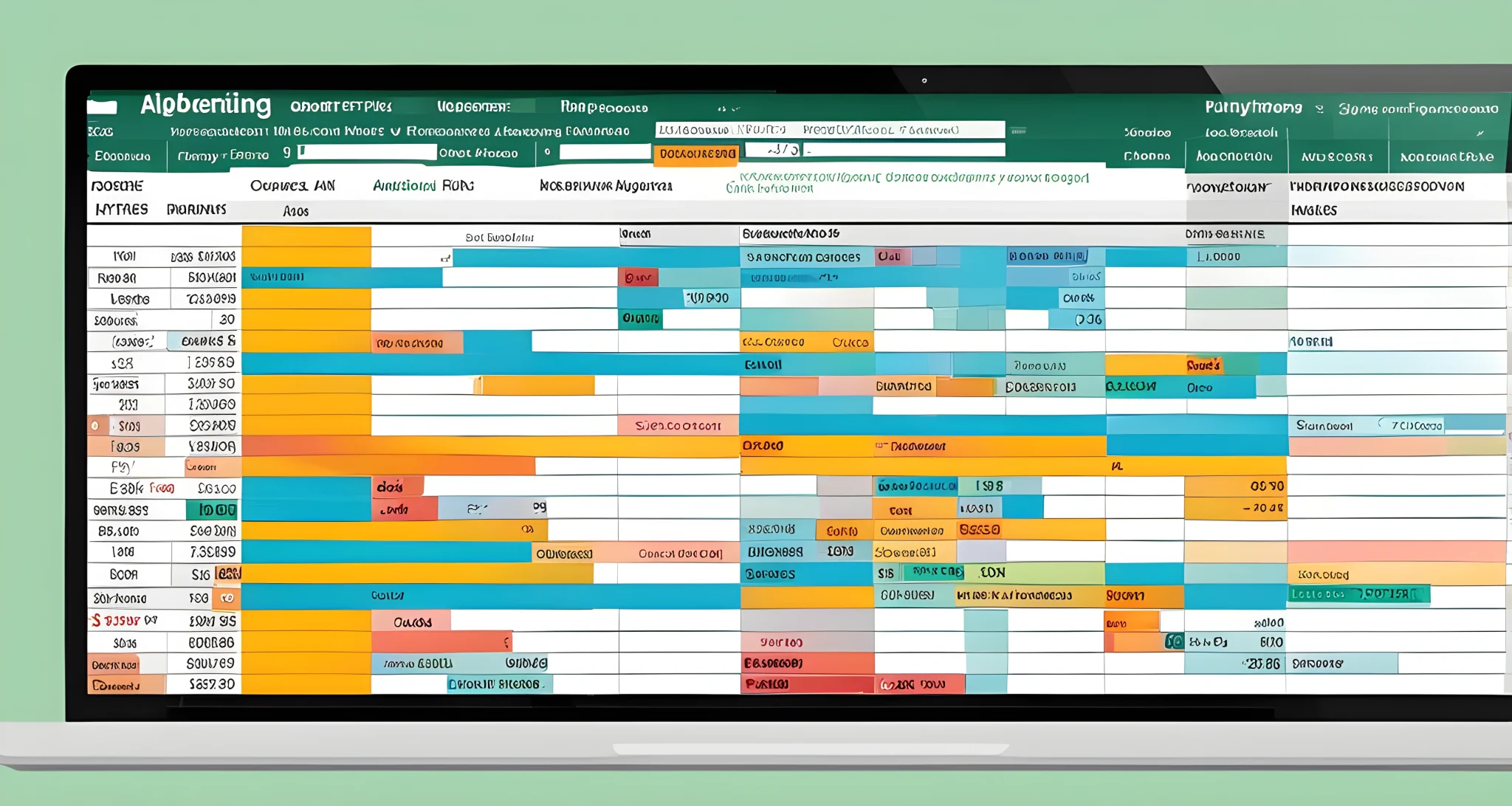
Budgeting by Item or Category
When it comes to finalizing your overall travel budget, it’s important to consider budgeting by item or category. This approach allows you to break down your expenses into specific items or categories, making it easier to track and manage your spending. Here are some tips for budgeting by item or category:
Track Your Expenses
- Keep track of all your expenses, whether it’s for transportation, accommodation, food, activities, or other miscellaneous costs.
- Use a detailed travel budget spreadsheet to record and categorize all your expenses.
Allocate Funds Appropriately
- Once you have a clear picture of your expenses, allocate funds to each item or category based on priority and importance.
- Consider factors such as the cost of living at your destination, the duration of your trip, and any specific activities or experiences you want to prioritize.
Make Necessary Adjustments
- After allocating funds to each item or category, review your budget to see if any adjustments need to be made.
- If you find that you have overspent in certain areas, consider reallocating funds from less essential categories to cover the shortfall.
Find Additional Ways to Save Money
- Look for additional ways to save money by finding discounts, deals, and special offers for transportation, accommodation, and activities.
- Consider alternative options such as Traveling Alone on a Budget, which provides valuable tips for saving money while traveling solo.
Refine Your Budget
- Refine your budget by making any necessary changes based on the information and data you have gathered.
- This may involve making adjustments to your travel plans to reduce costs or finding additional ways to save money.
By budgeting by item or category and following these tips, you can ensure that you have a comprehensive and realistic plan for your trip. This approach allows you to have better control over your spending and helps you make informed decisions about where and how to allocate your funds. With a well-refined budget in place, you can enjoy your travels without worrying about overspending.
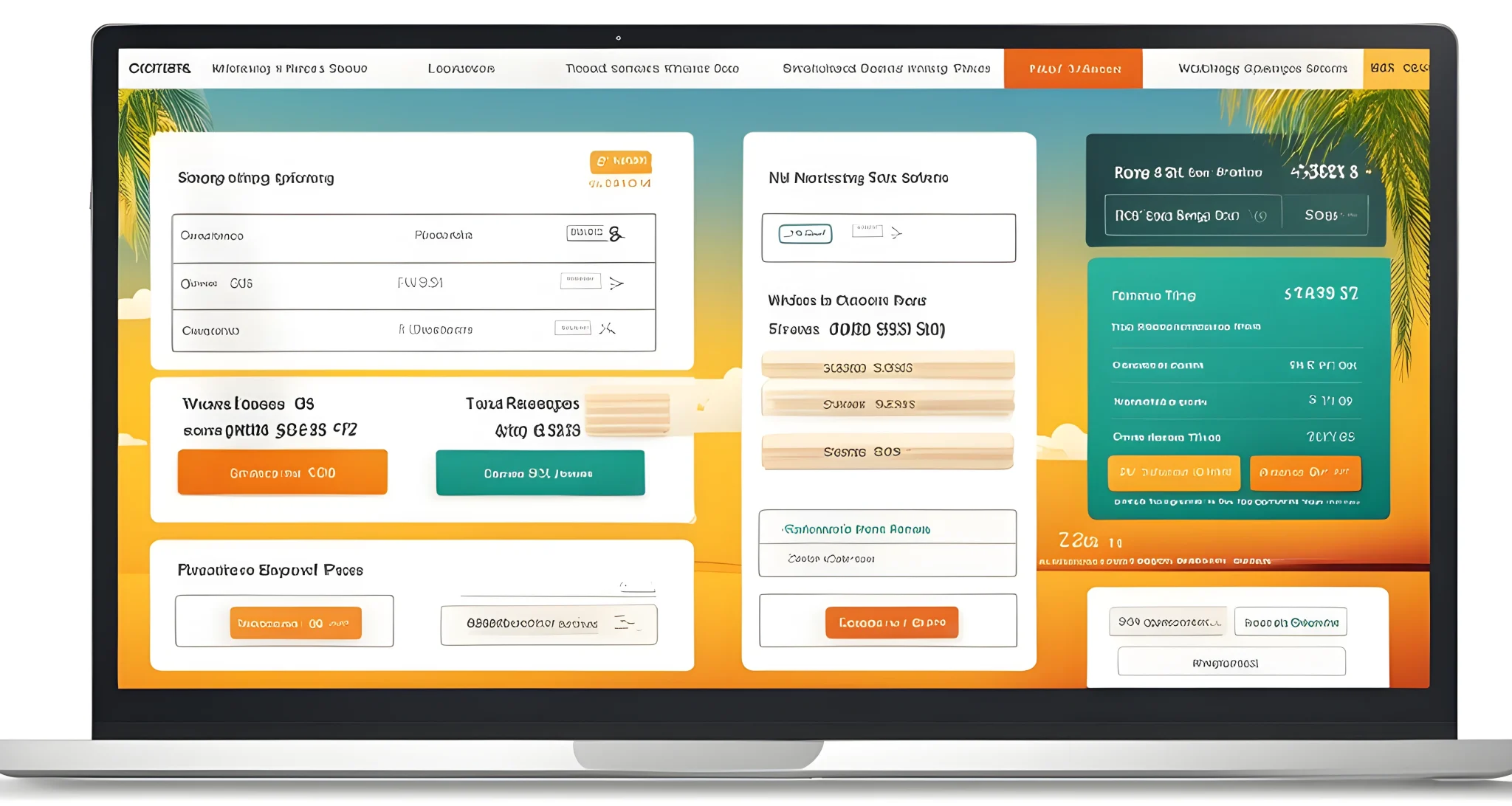
Finalizing Your Overall Travel Budget
Once you have created a detailed travel budget spreadsheet and refined it with expense categories, it’s time to finalize your overall travel budget. This step is crucial in ensuring that you have a clear understanding of your total trip cost and can make any necessary adjustments before your departure.
Consider These Steps for Finalizing Your Travel Budget:
-
Review and Adjust: Take a final look at your travel budget spreadsheet and review all the expenses. Make any necessary adjustments to ensure that your budget is accurate and realistic. This may involve cutting costs in certain areas or reallocating funds to cover unexpected expenses.
-
Compare Prices: Before finalizing your budget, take the time to compare prices for accommodations, transportation, and activities. Look for the best deals on flights, hotels, and car rentals to ensure that you are getting the most value for your money.
-
Factor in Contingency Funds: It’s always a good idea to include a contingency fund in your overall travel budget. This extra money can be set aside to cover unexpected expenses or emergencies that may arise during your trip. Aim to allocate around 10-15% of your total budget for this purpose.
-
Seek Additional Savings: Look for ways to save even more on your trip expenses. Consider using rewards points or miles from credit cards or loyalty programs Budget Airbnb Tips for affordable accommodations, dining, or activities. Every little bit saved can make a difference in staying within your travel budget.
-
Set Realistic Expectations: As you finalize your overall travel budget, it’s important to set realistic expectations for your trip. Be mindful of what you can afford and prioritize the experiences that are most important to you within your budget constraints.
By following these steps and taking a detail-oriented approach to finalizing your overall travel budget, you can ensure that you have a comprehensive understanding of your trip costs and are well-prepared for a cost-effective and enjoyable journey. With careful planning and consideration of all factors, you can make the most of your travel budget and have a fulfilling travel experience.
FAQ
What is the best approach for finding cheap flights?
Reverse your approach by first looking for destinations offering cheap tickets, and then pick the dates based on those prices. being flexible with your travel plans can help you find better deals.
Which are the best flight search sites to use?
Utilize tools like google flights, priceline, momondo, ita matrix, skyscanner, and various plugins to compare prices and find the best deals. these sites offer advanced search features for more complex searches.
Why is flexibility with dates and destinations important when looking for cheap flights?
Being open to different dates and destinations, and considering flying into a nearby airport if it’s cheaper, can help you save money and find better deals. flexibility is key in finding cheap flights.
How can tech tools help in finding the best flight deals?
Use features like google flights’ price tracking, predictive data, and platforms like hopper and kayak for notifications on price drops. these tools can help you identify the best deals and save money on flights.
